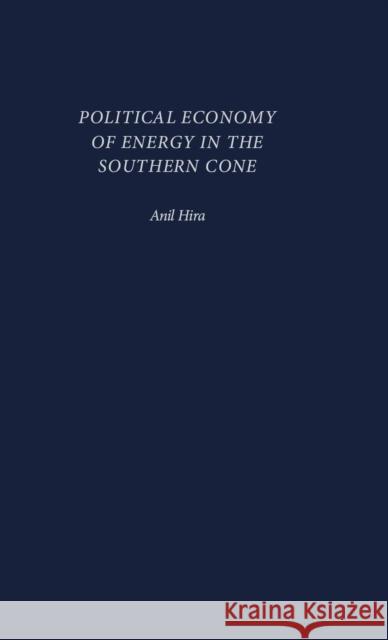Political Economy of Energy in the Southern Cone » książka
Political Economy of Energy in the Southern Cone
ISBN-13: 9780275978303 / Angielski / Twarda / 2003 / 128 str.
Hira explores the impact of the neoliberal revolution in Latin America, which claims the superiority of markets that are freed from government intervention and restrictions on trade and investment. He examines changes in the energy policy of the Southern Cone (Argentina, Bolivia, Brazil, Chile, Paraguay, and Uruguay) and finds that, contrary to what is claimed and expected, there is a great deal of state intervention that continues through regulatory policy.All around the world, economic markets are in flux. Policies to change these markets are part of the neoliberal revolution that claims the superiority of markets freed from government intervention and restrictions on trade and investment. The general conclusion among most academic and policy analysts who study developing countries is that market liberalization is a foregone conclusion. Developing countries' choices are constrained by two primary factors: first, the burden of massive external debt that forces them to court international finance, and second, the need to gain access to the world's largest markets in Europe and/or the United States, optimally through free trade agreements. The effects of market liberalization, including deregulation, privatization, and integration, require further scrutiny.Hira examines the effects of international market pressures on energy policy at the national, regional, and sectoral levels in Latin America's Southern Cone--Argentina, Bolivia, Brazil, Chile, Paraguay, and Uruguay--who belong to the MERCOSUR common market. Contrary to what is claimed and expected, he finds that a great deal of state intervention continues through regulatory policy. He also provides an thorough set of comparative political economy case studies, along with a discussion of the MERCOSUR process with regards to energy. His analysis of the political economy of electricity and natural gas deregulation is especially relevant in the wake of the California energy crisis, the Enron debacle, and international discussions about energy deregulation. This book is of particular interest to scholars, students, and other researchers involved with Latin American economic development and energy policy.











